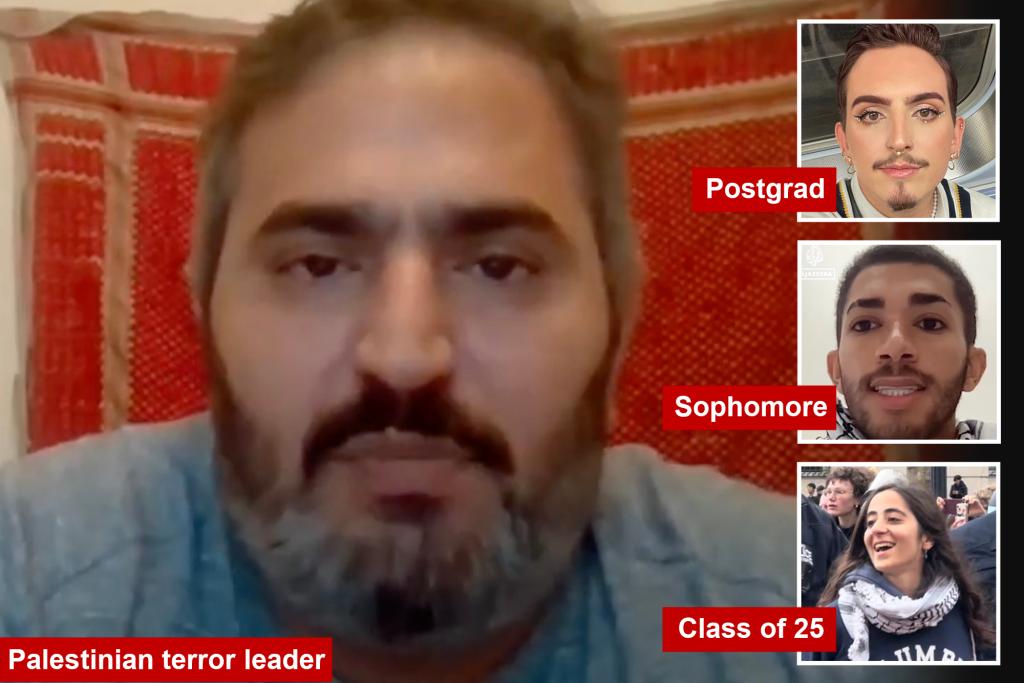Radical anti-Israel activists recently spoke at Columbia University and Barnard College, expressing support for Hamas in a seminar called “Resistance 101.” The activists, Charlotte Kates and Khaled Barakat, both known associates of the Popular Front for the Liberation of Palestine (PFLP), encouraged students to continue demonstrating despite negative media coverage. They portrayed themselves as representatives of Samidoun, a group advocating for the release of PFLP’s leader, Ahmad Sa’adat. The activists failed to acknowledge the violent actions of PFLP, such as the 2014 attack on a Jerusalem synagogue and the persecution of LGBT individuals in Gaza by Hamas.
The endorsement of a terrorist organization sparked controversy among students, leading to mass protests on campus. The event was organized by the Columbia University Apartheid Divest Group, an unofficial student organization that has ties to Students for Justice in Palestine, a group previously suspended by the college. The protest organizers were initially suspended for holding an unauthorized event, but some have since been readmitted. The students involved, including Aidan Parisi, Maryam Alwan, and Cameron Jones, face disciplinary action and criticism for their support of the Palestinian movement.
Parisi, Alwan, and Jones have been vocal about their continued commitment to the Palestinian cause despite facing consequences from the university. Parisi, whose mother is a State Department official, expressed determination to fight for Palestine regardless of the obstacles. Alwan, a Palestinian-American student, remained defiant following her arrest at a protest on the Columbia campus. Jones, a Jewish student, emphasized his privilege and the importance of standing up for marginalized communities in Gaza and the West Bank.
The anti-Israel protests at Columbia University and Barnard College have raised concerns among Jewish students who feel unsafe on campus. The activists involved, including Nerdeen Kiswani of Within Our Lifetime, have openly expressed support for Hamas and the violent actions taken by the group against Israeli civilians. The presence of individuals with ties to designated terrorist organizations has caused controversy and led to questions about freedom of speech and academic responsibility at the prestigious institutions.
Despite facing criticism and disciplinary measures, the student organizers continue to advocate for the Palestinian cause and criticize the university for its handling of the situation. Catherine Elias, a graduate student at the School of International and Public Affairs, and Layla Saliba, a social work postgraduate, were among the key organizers of the Columbia University Apartheid Divest group. The protests have attracted attention for their anti-Israel sentiments and support for violent organizations, prompting debate about the boundaries of free speech and activism on college campuses.
Overall, the events at Columbia University and Barnard College highlight the complexities of activism, free speech, and academic responsibility in relation to the Israeli-Palestinian conflict. The involvement of individuals with ties to terrorist organizations has sparked controversy and debate about the limits of expression on college campuses. Jewish students have expressed concern about their safety, while activists continue to defend their support for the Palestinian cause despite facing disciplinary action. The protests have brought attention to the ongoing conflict in the Middle East and the role of academia in promoting dialogue and understanding.


